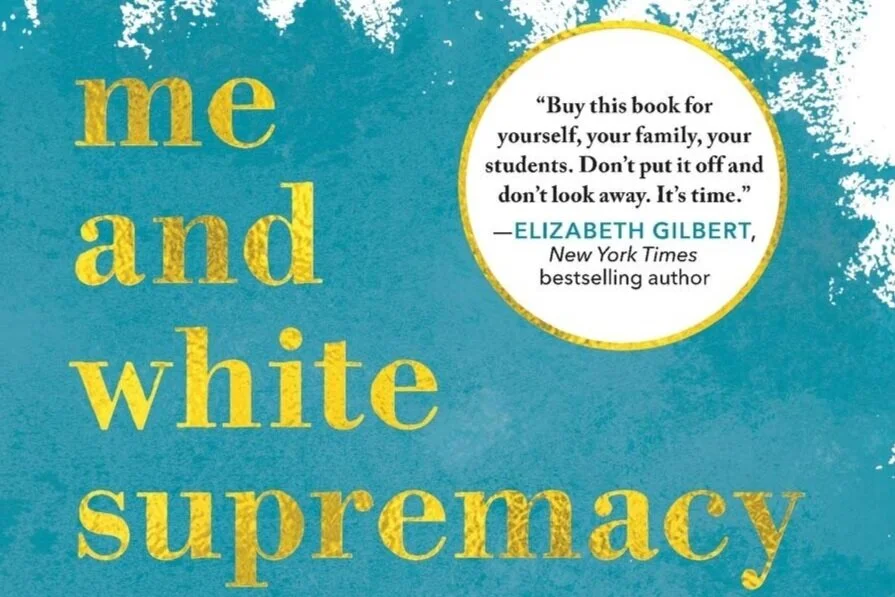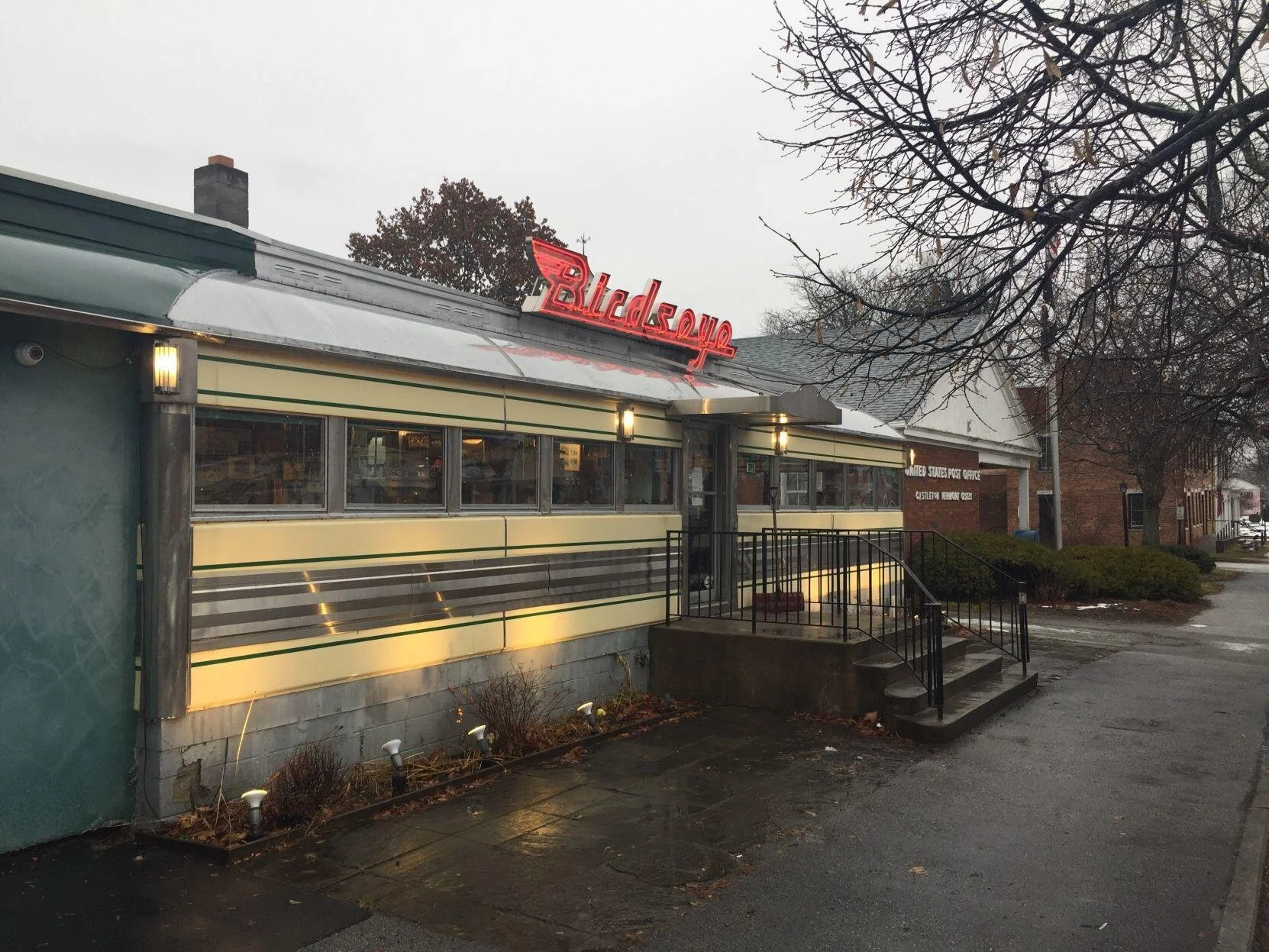Rutland Winter Farmer’s Market offers array of products all season long
Ian Vair of Green Mountain Fungi explaining his dishes to a group of customers. Photo by Josie Gawrys.
RUTLAND — Tucked away in an old Rutland industrial building lies a vibrant farmer’s market overflowing with food, community and culture.
From foraged mushrooms to soaps to foreign cuisine to handcrafted beads, the Vermont Winter Farmer’s Market at the Vermont Farmer’s Food Center is not lacking in any department.
Lynn Jensen, who runs Felted Forest VT in Chittenden, is one of the many vendors selling their winter wares. She uses the art of needle felting to create charming woodland creatures.
“I’m using the woods of North Chittenden as my inspiration, so I kind of keep that woodland theme,” Jensen said. “Woodland animals and gnomes happen to be very popular right now.”
When Jensen first began needle felting, she was making toys for her cats. The felted wool, she said, was the perfect thing for cats to bat around and play with. Over the years, the complexity of her creations grew, and it eventually turned into a business.
Jensen’s stock, which she’s sold during the Winter Market for two years, includes several small animals such as penguins, owls, rabbits, mushrooms, acorns and a variety of gnomes. And while she loves her art, she also loves the customers at the market.
“I love meeting people and their reactions to all the creations here. I get wonderful feedback,” Jensen said.
Lynn Jensen of Felted Forest VT working on her next project. Photo by Josie Gawrys.
Greg Cox has owned Boardman Hill Farm since 1982 and has been a farmer since 1975. Cox is one of the original founders of the food center itself, as well as the winter market. The market was founded with the intention to provide food year-round.
“You know, if you’re going to rebuild a local food system, people eat 12 months a year, not just six months in a year. So, we created the first 52-weeks-a-year market in the state,” Cox said.
It started out small when they purchased the old factory in 2012, but it has grown over time to become a bustling hotspot for a wide range of grocery-type needs. And this isn’t the busy time of year; summer is.
Growing up in Long Island, his grandmother taught him the importance of locally grown produce. They grew all of their own food and tended a huge garden. Just seven years into his career, he had the opportunity to purchase the 80 acres of the Boardman’s diverse and historic land, which he fondly refers to as “a cross between the Shire and Camelot.”
“I live with nature and I feed people. And that has been my passion and my dream my entire life,” Cox said.
Cox values feeding his community, but even growing food alone is rewarding.
“I haven’t found any of the foods that I produce are not amazing. You know, you’ve pulled a cherry tomato off the vine or raspberry off of a bush…” said Cox, trailing off. “There’s just no word for it.”
The Winter Market is a shell of its former self thanks to the pandemic, and Cox is eager to return to the pre-COVID level of vendors.
“You are seeing the shadow of that market,” said Cox, the passion evident in his voice. “That place is usually filled, just filled, you can’t even get a parking spot.”
The pandemic hit all small businesses hard, but it turned the farmer’s market on its head as it experienced alarming dips in both customers and vendors alike.
But the vendors all look out for each other, Cox said, and have a strong sense of community.
“We have a group of agricultural producers that openly share all the information necessary to make all of us better. It’s not competition,” said Cox, “that’s what makes it better, because we are learning from each other and sharing that cooperative competition.”
Cox is not the only vendor who emphasized the importance of community within the market.
Business partners Ian Vair and Kiera Nauton began to work together during the pandemic, and now run a stand in the market.
“I like that it’s good for the community. I like that it’s like bringing the community together,” said Vair, while serving mushroom-infused macaroni and cheese to a patron. Just a few feet away, Nauton describes her crochet and jewelry to a group that’s stopped by.
Vair was an executive chef before he had to take a step back from that career due to epilepsy. Nauton’s partnership means he can still do what he loves, and they both benefit from the cooperation of selling their products side by side.
Johnathan Charles, owner of Mendon Mountain Orchards, brings his young daughter Amelia with him to the market every week.
“She loves it. You tell her in the morning that it’s farmer’s market day, she gets dressed, she looks forward to it,” Charles said. He smiles over at Amelia, who is leaned back in her chair and waving her two toys above her head.
This warm, close-knit community does not go unnoticed by patrons—in fact, they seek it out. Families doing their shopping for the week, some who have been coming for years, love the market simply for its charm.
Bruce, a customer who only shared his first name, gets all of his produce at the market each week.
“I love not only the food and the quality of it, but just the dynamic of the market and the people, and being in touch with the people who actually, literally, have their hands in the dirt,” he said.
Cox, who has his own farm stand in one corner of the market, could name each vendor and had something to share about all of them.
“We have an intimate relationship, that’s why we’re the Vermont Farmers Food Center and they’re the Vermont Farmers Market,” Cox said, “We are hand in hand, arm in arm.”










